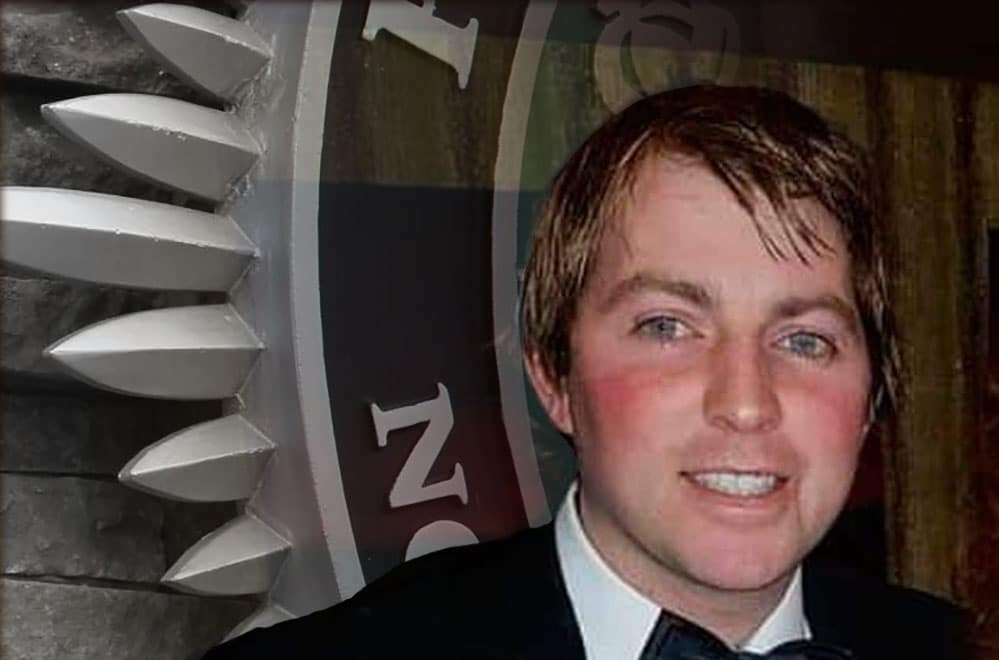
For almost a year, the PSNI avoided answering a straightforward enquiry on whether An Garda Síochána had been contacted in relation to Jonathan Creswell, after he fled to the Republic of Ireland while wanted for exposure in 2016.
It has now emerged that a refused Freedom of Information request was wrongly grounded on excess costs, yet accepted by the Information Commissioner.
Gardaí were never contacted, but instead of admitting this, the PSNI opted to contend that the request was too expensive to answer.
Creswell was charged with murdering showjumper Katie Simpson in August 2020, having presented her unresponsive and half-naked to paramedics, claiming he had rescued her from a hanging attempt.
Concerns were raised from the start, particularly around Creswell’s previous convictions for attacking his former partner, Abi Lyle.
Despite glaring similarities, police dismissed those concerns — and it later transpired that these convictions had vanished from Creswell’s record.
An existing ‘wanted’ alert for the exposure incident, and vital information reported while Katie fought for her life, had also disappeared.
Creswell’s trial for Katie’s murder collapsed within 24 hours when he took his own life.
The exposure victim and her partner — who we are calling Sarah and Ian — had worked with Creswell briefly in late 2015 at stables in County Antrim.
They reported him to the PSNI, but he fled on learning he was wanted for interview.
Sarah described how he “boasted, saying his only mistake was ‘not finishing the bitch off’. I warned the police he was dangerous. I wasn’t believed.”
Ian confronted Creswell, recording the interaction on his phone.
Enraged, Creswell threatened to “snap [Ian’s] neck and break his back”, while shouting, “your c**t of a girlfriend will get what’s coming”.
With the workplace so toxic, the couple left, reporting the matter to police in January 2016 — but Creswell was never traced.
After learning of Katie’s murder, Sarah complained to the Police Ombudsman, but this was rejected as the PSNI managed to convince investigators that efforts to locate Creswell were unsuccessful and that he was believed to be in the Republic of Ireland.
However, evidence countering this was presented to the Ombudsman, and Sarah’s complaint was reopened.
Multiple FOI enquiries to the PSNI followed, but these were deemed too expensive to answer, and with upfront payment declined, it became clear that efforts were underway to shield potentially uncomfortable answers.
Critically, it was the rejected enquiries about Garda contact that exposed the issue.
A complaint to the ICO was rejected as the PSNI had “demonstrated reasonably how confirming or denying the information requested would exceed the 18-hour threshold”.
But by this stage, it had been discovered through other means that Gardaí were never contacted — even though the PSNI had originally managed to convince the Ombudsman that all had been done to find Creswell.
Rather than admit this, the PSNI contended that it would take in excess of the 18 hours permitted for FOIs, and the ICO accepted this.
In fact, investigators in the reopened Ombudsman inquiry took just slightly over five minutes.
When the Policing Board was informed that the PSNI may have potentially misled the ICO, a spokesperson said it is “not routinely informed of determinations and has not been advised of this case. Correspondence received will be tabled for members’ information at the next Board meeting on November 6.”
Meanwhile, an ICO spokesperson said: “The decision was based on PSNI submissions which were deemed thorough, sensible, cogent and realistic. A complainant who feels a decision is in error has the right to appeal.”
The PSNI requested a number of extensions to respond after being asked to investigate how, and on whose instructions, this occurred, and to review the multiple previously rejected FOIs in the Creswell case to establish whether the refusals were genuine.
Eventually, a final deadline was given — but there was no response at the time of publishing.



